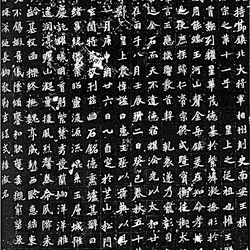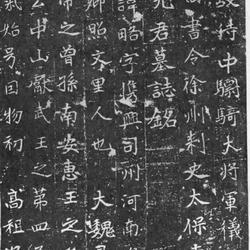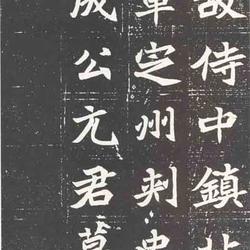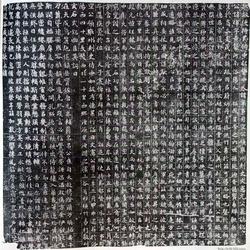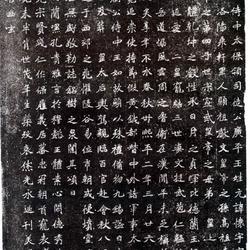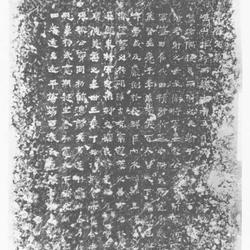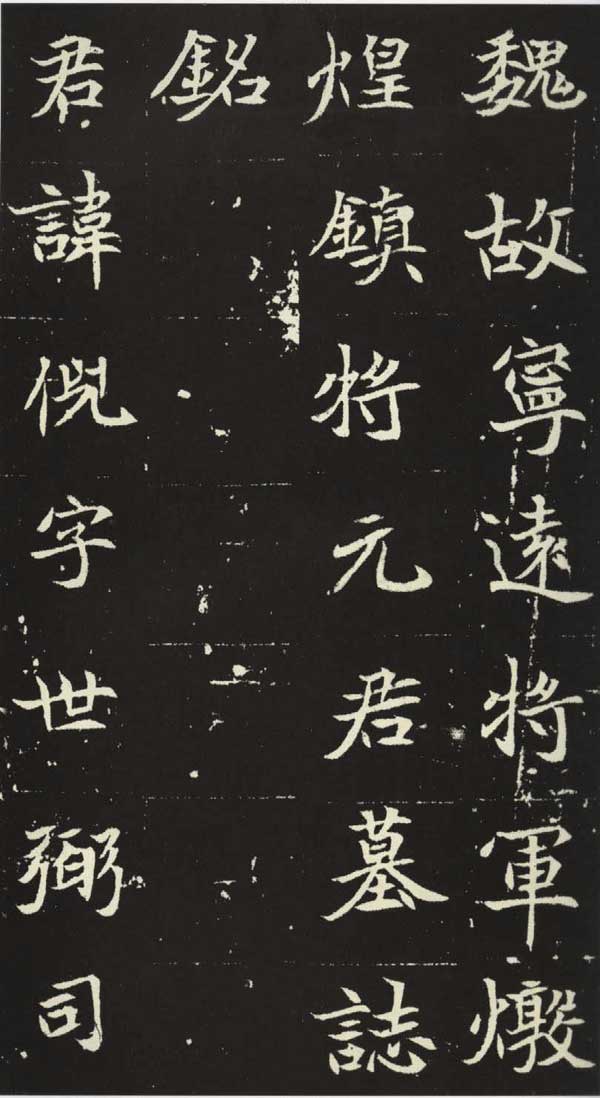
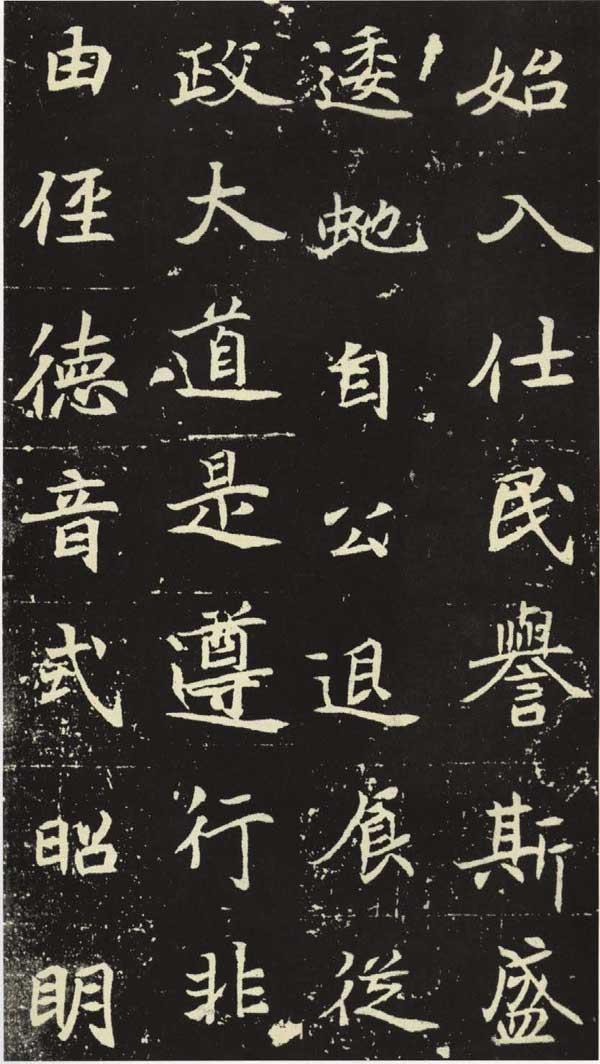
The Epitaph of Yuan Ni in the Northern Wei Dynasty is full name "The Epitaph of Yuan Jun, the General of Ningyuan in the Wei Dynasty". It was carved in February of the fourth year of Zhengguang (523) in the Northern Wei Dynasty. Regular script. 19 lines, 22 words per line. The length is 74 cm and the width is 73.5 cm. It was unearthed in Yaoao Village, Luoyang, Henan in the early years of the Republic of China. It was once owned by Zeng Bingzhang of Changshu, Jiang Gusun of Haoxing, and Chen Yuchun of Panyu. This stone was acquired from Chen in 1960 and is now in the Shanghai Museum.
Luoyang, Henan, was the capital after Emperor Xiaowen of the Northern Wei Dynasty moved the capital. The original surname of the Northern Wei royal family was Tuoba. Emperor Xiaowen changed Tuoba to Yuan in order to promote Hanization. The Mang Mountain area in the north of Luoyang City is the ancestral tomb of the Yuan family. A large number of epitaphs have been unearthed one after another, collectively referred to as the Yuan family epitaphs. "Yuan Ni's Epitaph" is one of the representative works among Yuan's epitaphs. Yuan Ni is the great-great-grandson of Emperor Daowu, Taizu of the Wei Dynasty. The writer of the epitaph should be a master at that time. He is skilled in calligraphy and has rich and full ink. Influenced by the calligraphy of the Southern Dynasty, he incorporated the round pen and cursive calligraphy techniques, and the flow of dots. The calligraphy style tends to be elegant, smooth, and elegant. , is a masterpiece among the epitaphs of the Northern Wei Dynasty. The engraving work of this annals is also very fine, and it can convey the meaning of the original calligraphy in detail. There were once photocopies of this journal in Japan, but now printed copies are rarely seen in China.
Inscription:
The epitaph of Yuanjun, the general of Dunhuang town, the former Ningyuan general of Wei Dynasty
Junta Ni, whose courtesy name is Shibi, was born in Zhaomingli, Duxiang, Luoyang County, Henan County, Sizhou.
Taizu Daowu, the great-great-grandson of the emperor, Zuo Guanglu, the minister of the Ministry of Civil Affairs, Da Zongzhengqing, the uncle of King Nanping, led by General Si Zongwei and the governor of Dingzhou. On the twenty-ninth year of the year, he paid homage to the minister of Sanqi. In February of the 21st year of Taihe, he died of illness in Luoyang's Guangmingli residence. He was given as a gift to General Ningyuan and General of Dunhuang. Spring and Autumn thirty-four. In the fourth year of Zhengguang's reign today, on the twenty-seventh day of Wuwu and Shuo in the second month of Guimao, Jiashen was moved and buried in Yang of Dongshan Mountain in Jingling. Nai made an inscription saying:
The spirit of the country is beautiful, the founder of the imperial family is Ying, and she is a beautiful person who is as warm as jade. The royal family is thousands of miles away, pure and noble, ruthless and talented, and only handsome. At the beginning of his career, Yuan became an official, and his reputation among the people was very high. However, he became self-reliant, retired from food, and joined politics. The great road is to be followed, but the path is not followed. The sound of virtue is clear, and the clear mind overcomes the mirror. It is rare for a person to reach the age of 100 years, and his life will be short-lived. The year is still young, the years are over, the son is away from the disaster, and his life is interrupted. The noble and the lowly are together, the kings and grandsons who are familiar with each other are different, the soul is buried and the consciousness is lost, and the soul is abandoned in the wilderness. A little further away from home, ghosts and beauties grow dim, carving on gold and stone to soothe the soul.
Emperor Gaozu Daowu. Great-grandfather, King Guangping. The ancestral envoy Chijie was in charge of the military affairs of Liangzhou and Xirong, and he was responsible for guarding the Western Regions. The school captain conquered the West, General Yi Tong, the third division commander of Liangzhou, and the governor of Nanping. His posthumous title was King Kang. His ancestor is the Yao family in Nan'an, and he is the second in line to the emperor's uncle in Wannian County. His father, Zuo Guanglu, the official minister of the Ministry of Civil Affairs, Da Zongzhengqing, led General Sizongwei to Dingzhou as the governor of Nanping, and his posthumous title was King An. Her mother is Wang from Taiyuan, and her posthumous title is Concubine Gong.

